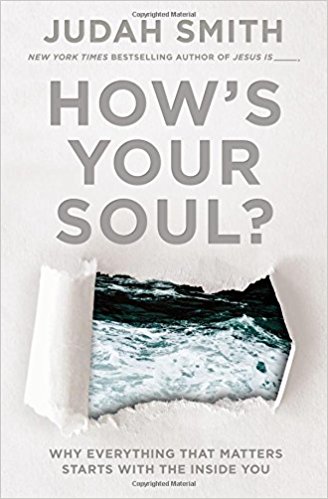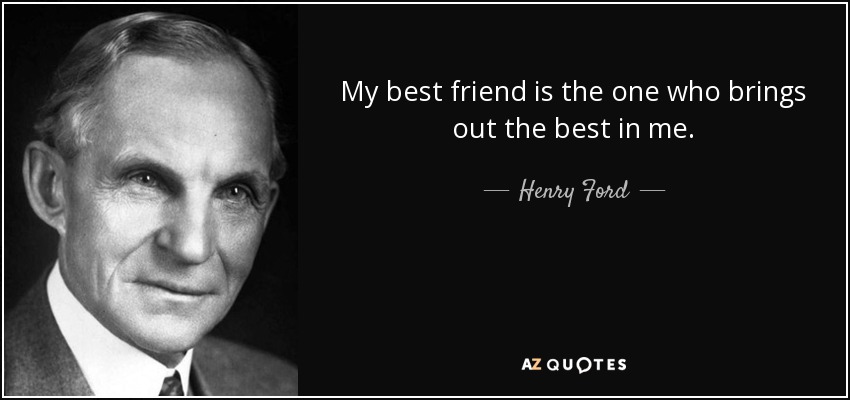Click here to return to Blog Post Intro

HOME SWEET HOME
Is It Well with Your Soul?
Just as our physical bodies need to regularly go home in order to be healthy, so do our souls. Scripture points out how our souls are central to our existence, and a healthy soul is paramount to a healthy life.
The apostle John, who called himself “the disciple that Jesus loved”, defined himself by how much God loved him. If we adopted a similar attitude, it would solve a lot of the internal turmoil we face.
In 3 John 2, he wrote, “Beloved, I pray that all may go well with you and that you may be in good health, as it goes well with your soul.” Eugene Peterson’s The Message paraphrases the verse like this: “We’re the best of friends, and I pray for good fortune in everything you do, and for your good health—that your everyday affairs prosper, as well as your soul!”
First and foremost, God wants our souls to be well.
Our typical fix when we find problems on the inside is redoubling our efforts on the outside. We fall into the trap that if we can be healthy, wealthy, popular, productive, and influential, then life will be good. So we throw ourselves into the chase, thinking that internal happiness will come from external success, but our health and wellness don’t move from the outside in. Our health starts on the inside.
As Smith puts it, “My soul is the center of who I am. It is the inner me, the real me, the invisible me that transcends the physical me, the part of me that in some sense will live eternally in heaven.”
When God breathed life into man in Genesis 2:7, it was clear that our souls came from, depend on, and long for God. He gave us life, so his presence is essential to our ongoing health. God’s breath is the oxygen our souls breathe. Our souls long for God on a fundamental, foundational level because his life-breath created us and sustains us.
ORIGINAL HOME
When God designed the soul, evil did not exist; death did not exist; selfishness did not exist. Humanity enjoyed a sinless, flawless environment. We must understand that sin was not part of God’s creation. Why? If we don’t deal with the sin issue, it will be difficult to apply the following four elements of a healthy soul environment:
-
Our Souls Need Rest (Genesis 2:7-9)
Our souls need relaxation, enjoyment, peace, and pleasure. God gives us a picture of rest by describing his creation to Adam and Eve, “Enjoy the sights and the tastes. I want you to love it. It’s free. It’s for you. I designed life to be enjoyable.”
A restless soul is a soul that thinks it is in control and needs to take care of everything. If we do not rest, we are trying to be our own God. We have to remember that even when we rest, God does not. When we sleep, God does not. And when we cease working, God does not.
Worry comes from thinking we are in control. True rest is unattainable for people who are obsessed with leading their own lives. But rest is one of the primary postures of those who know Jesus, because we have a God who is in control and who is taking care of us.
One of the most spiritual things you can do today might be to cancel your fast-paced, anxious preparation for your big meeting tomorrow. Make a new friend or look up some old friends and go get some good food. Take time to laugh about life and consider the goodness of God. Maybe you are worried or fearful about something, and you think, I need to fast and pray.
-
Our Souls Need Responsibility (Genesis 2:15)
In Genesis 2:15. “The LORD God took the man and put him in the garden of Eden to work it and keep it.” In other words, God gave the human soul responsibility. God had an assignment for Adam. He had a job. The difference is that before the intrusion of sin, there was no anxiety, toil, or sweat in that job. But Adam still had something he was required to do. God created humans to bear responsibility.
Your soul finds fulfillment, health, and life when you live beyond yourself. The Bible says, “Whatever your hand finds to do, do it with all your might” (Ecclesiastes 9:10 NIV). Have you ever stopped to think that maybe responsibility is a key to fulfillment and joy on the inside?
-
Our Souls Need Restraint
Restriction and restraint are necessary for a healthy soul. A soul without restraint is an unhealthy soul, and the results are obvious to those around us. Smith argues that God put the tree of the knowledge of good and evil there because when Adam and Eve walked by, the limitation was good for their souls. Their souls felt protected and secure. Their souls felt directed and guarded because they had the ability to say, “I can, but I won’t; and that’s good for me.”
Self-imposed restraint is maturity in a nutshell. It’s when you have the money, you have the desire, you have the opportunity, and yet you still say, “Nope.”
-
Our Souls Need Relationship
These first three elements of a healthy soul—rest, responsibility, and restraint—fall flat if we miss the last element: relationship. We were meant for community. Even the most introverted, solitary personality types need at least some level of human interaction in order to maintain healthy, thriving, vibrant souls. It is unhealthy for our souls to be isolated or without relationship.
You may wonder if God cares about your friends. He most definitely does. Consider God’s view of Adam when He says, “I will make a helper suitable for him.” A healthy friend could be defined as “a helper who fits.”
Are you intentional about your friends? Are they helping you? Do you fit together?
Someone once said, “Show me your friends, and I’ll show you your future.” But we could go even further. “Show me your friends, and I will show you the state of your soul.” These are the people who are feeding you on the inside. Are they giving you life? Are they serving or only taking? Are they building you up or tearing you down?
SURPRISED BY MY SOUL
In the journey of life, emotions make great companions but terrible leaders.
Just because you lead people and help people doesn’t mean you are always going to be healthy on the inside. If anything, the pressure of public influence increases the unhealthy tendencies of our souls. If we aren’t careful, it can make us defensive and isolated. Instead of looking for help when we need it, we pretend to have it all together.
Scriptures like Psalms 42 and 43 remind us that God knows exactly what is going on inside us. God is the master architect of the complicated, confusing, and even contradictory constructs that we call our souls. It’s difficult for our souls to pull themselves up by their own bootstraps—whatever bootstraps are—because emotions are so complicated and even subversive. The problem with discouragement is that discouragement never leads to encouragement. Have you noticed that? Discouragement leads to more discouragement.
If we want to be healthy on the inside, we have to question our insides. We have to question our souls. We have to question our feelings.
Fulfillment, peace, joy, and health on the inside are, ironically, often found by doing the exact opposite of what we feel like doing in the moment.
From Psalm 42 and 43, the author is lost, confused, and hopeless. So he looks at his options, and he comes to this conclusion: Either life is meaningless and my existence doesn’t matter—or God is the only hope I have. When we consider the magnitude and proliferation of pain and suffering on this planet, those are really the only two conclusions we can come to.
Remember God’s goodness, presence, and power. Your feelings come and go, but God remains the same, and you will praise him again. It’s only a matter of time. The songwriter goes on. He says, “Hope in God, for I shall again praise him, my salvation and my God.”
God is not just the God of the universe. He is your God, your salvation, and your hope. He is available to you. His attention and care are perpetually toward you.
AN ANCHOR FOR MY SOUL
Our inner needs for security, strength, and solidity can be met only when our souls find their homes in God. Hebrews 6:17–20 describes this reality. The author used the familiar imagery of a boat and an anchor to remind these ancient Jesus followers that when they felt overwhelmed, they needed to hang on to Jesus. Jesus was enough for them; they just needed to hold on to the hope of their souls, regardless of the tumult and torrent around them. The writer painted a beautiful portrait of the hope and security and stability we have in Jesus. He said, “We have this as a sure and steadfast anchor of the soul.”
Smith notes, “I wish the writer of Hebrews hadn’t said anchor. I read this and thought, I wish it said helicopter of my soul. When I’m in a storm, I’d much rather have a helicopter than an anchor. An anchor implies that I am going to stay right where I am. But I’d like to escape, actually. I’d like a helicopter with some well-trained Navy SEALS on board who can hoist me up and fly me away from my reality. People sign up for helicopter Jesus all the time. I cannot wait to follow Jesus, they think, because he’s my heavenly helicopter. Get me out, Father! Hoist away, Jesus!”
We want out. We want an escape. We want someone to remove us from the storm, but Jesus wants to be our strength and stability in the storm.
An anchor does its best work where it is never seen. An anchor plunges through the depths of the sea until it settles and wedges itself into the ocean floor. Meanwhile, back on the surface, in the boat that is your soul, you continue to be buffeted by the elements of life. All you can see in the moment are the wind and waves. But under the surface, you have an anchor.

IS LOVE GOD OR IS GOD LOVE?
Love might be the single greatest need of the human soul, but if we are honest, we are not entirely sure what it is. We need to realize that God is love. It is knowing, believing, and living in the love of God. It is experiencing God’s love for us on a soul level, and as a result learning to love as He loves.
If love is God but we all get to make up our own definitions of love, then ultimately we all are God. Because when you replace a person with a concept, whoever defines that concept has ultimate authority.
1 Corinthians 13—the Love Chapter—describes love as a lifestyle. Love is practical. Love is something you live and walk and talk. Love does not just make for good sermons—love makes for good living.
If we are going to truly love each other like God loves us and created us to love, then we have to be committed. “Love bears all things, believes all things, hopes all things . . .”
Love recognizes that where we are is not where we will always be. We are on a journey. We are works in progress. With his dying breaths on the cross, Jesus asked God to forgive His executioners. His prayer reveals the essence of who He is: the personification of God’s unconditional love and forgiveness. Grace has no gaps and love knows no limits. Love endures all things.
A QUIET SOUL
Not only is life loud, but it’s fast. Our world and culture travel at a high velocity. There is so much going on, so much to hear and process. It seems we are all in a rush now. Even in a fast and furious world, can we cultivate quiet souls? Can we be calm and peaceful and at rest on the inside, even when all around us are chaos and noise?
In Psalm 131, King David demonstrates that he understood something that our frenetic twenty-first-century culture desperately needs. He knew how to maintain a quiet and restful soul. In verse 2, David is intentional about having a calm, quiet soul. He values it, he seeks it, and he finds it.
Somehow, even with all his opulence and popularity and fortune and fame, he found a way to quiet his soul. If King David could develop a calm soul in the middle of the craziness and chaos of ruling a kingdom, maybe there is hope for you and me. If we want to have a calm, quiet soul, we have to recognize that we are not in control.
Quietness and rest are found not in control but in surrender. The prophet Isaiah said exactly that to Israel hundreds of years later:
Ambition that isn’t tethered to God’s calling tends to take on a life of its own. Often it turns into competition and comparison. Our focus becomes getting that job, that salary, that house.
Do you want a quiet soul? Do you want a peaceful spirit? Then draw lines. Draw limits. Create a margin and a buffer for your soul. Every day there will be issues, topics, and drama that cross our paths but are not necessary for us to understand. These things are on a need-to-know basis—and we don’t need to know.
David faced the same question we do today: Do I live according to who I really am, or do I live according to who people perceive me to be or want me to be? Worship reminds us of who God is and who we are.
In the middle of all your coming and going and doing, you can, like King David, let God calm your soul. Even in a world where the volume is deafening and the velocity is dizzying, you can discover sanity, rest, and ease. You can discover a relationship with God that revolves around not getting things from him, but simply being with him. And in that space, you will find a calm and quiet soul.
AN EFFECTIVE LIFE
Life is a journey. Rather than asking, “What do you want to be when you grow up?” we should ask a far more important question: “What do you want your life to look like?” Or maybe, “What kind of soul do you want to have?”
An effective life can look back and say, “My soul is full. I became who God made me to be. I did what God put me on this earth to do. I enjoyed life, I loved life, I made a difference. I had a full and fulfilled existence.”
Paul yielded his schedule, his decisions, his destinations, and his directions to God. Paul isn’t just surrendered—he’s surrounded. Do you want to live an effective life? It’s not as complicated as some might say it is. First, yield to God, your Creator and your Father. Turn over control of your ways and your days to him. And second, receive from the community that God puts around you. It’s that simple. Stay surrendered and stay surrounded.
You’ve probably heard that haunting proverb, “Whoever isolates himself seeks his own desire; he breaks out against all sound judgment” (Proverbs 18:1). In other words, if we are not surrounded, we’ll tend to make dumb decisions. We’ll be deceived by our passions and desires, and we’ll end up hurting ourselves. We weren’t designed to be alone. We are relational beings.
NEW YOU
Our actions, decisions, and emotions are the natural result of what we think about ourselves. They flow from the perspectives we have of our identities.
God wants to give identity to our souls. He wants to change us from the inside out and make us new people. He wants to help us see ourselves for who we are in him and then live accordingly.
Smith notes, “The longer I pastor and the more I talk with people, the more convinced I am that belonging is a fundamental need of the human soul. Many people are willing to do anything or sacrifice anything just to feel like they belong somewhere. God wants you to know that you don’t have to do anything to belong. You belong just as you are. You are already part of his family because of your faith in Jesus.”
Too many times as Christians we imply that people have to first behave and believe the right way before they can belong to our communities. The biblical progression is first grace, then faith, then works. That is the divine order. God gives us his grace, and we respond in faith, and eventually our faith and relationship with God produce a healthy, holy lifestyle.
INSIDE JOB
Do you ever feel like Smith describes, “The inconsistency in my soul, my walk, my behavior, and my relationship with Jesus is alarming at times. I start out as this confident, faith-filled person, but then I get one negative report and all of a sudden there is no God.”
Our souls need consistency. They need a steady walk and a regular pace. The point of our walk with God is not arriving. The point is walking. The point is being in relationship with God and experiencing life together. Growth and change are great, but they are not the main goals. In our souls’ walk with God, consistency is more important than growth.
God is working on the inside of you. Remember, when we look at ourselves, we tend to think outside in—but God thinks inside out. God looks first at the inside. He is more concerned with our souls than our bodies.
As Paul noted in Philippians 1:6:
- “The one who began”: Our walk with God starts with God. This is paramount. This is foundational.
- “A good work in you”: God is more than able to transform people on the inside. That means we don’t have to force anybody—including ourselves—to believe, look, act, or talk a certain way. That is God’s responsibility. That is his job description, and he is really good at it.
- “Will perfect it until the day of Jesus Christ.”
HEAVEN
In the Lord’s prayer (“Our Father in heaven…”), Jesus is saying that when we dialogue with God, we need to consider where our Father is: he is in heaven. Jesus is saying, “I want heaven to be on your mind when you talk to God.” Why is that important? Because earth is what consumes our minds more often than not.
Paul said the same thing to the Colossian church: “If then you have been raised with Christ, seek the things that are above, where Christ is, seated at the right hand of God. Set your minds on things that are above, not on things that are on earth. For you have died, and your life is hidden with Christ in God” (Colossians 3:1–3). Paul and Jesus were communicating the same thing: we are to orient and organize our lives around heaven’s reality.
If we are going to live like Jesus, we need to think about heaven more. It’s as simple as that. Ironically, when it comes to our passions and priorities, we often live as if this planet were forever and heaven were temporary.
Life’s complexities and challenges would be far less complex and far less challenging if we could approach every day like Jesus did: from heaven to earth. The more we live from heaven to earth—that is, the more we orient and adjust our lives to take eternity into account—the healthier and happier our souls will be.
Smith concludes by saying, “Your soul’s walk with God is not empty ritual or religion, but a dynamic, organic, and always-new experience with him. You are in a process. You are on a journey. God is at work in your soul, and I truly believe your greatest days are still ahead!”
May it be well with your soul, as you shoot for the stars!





